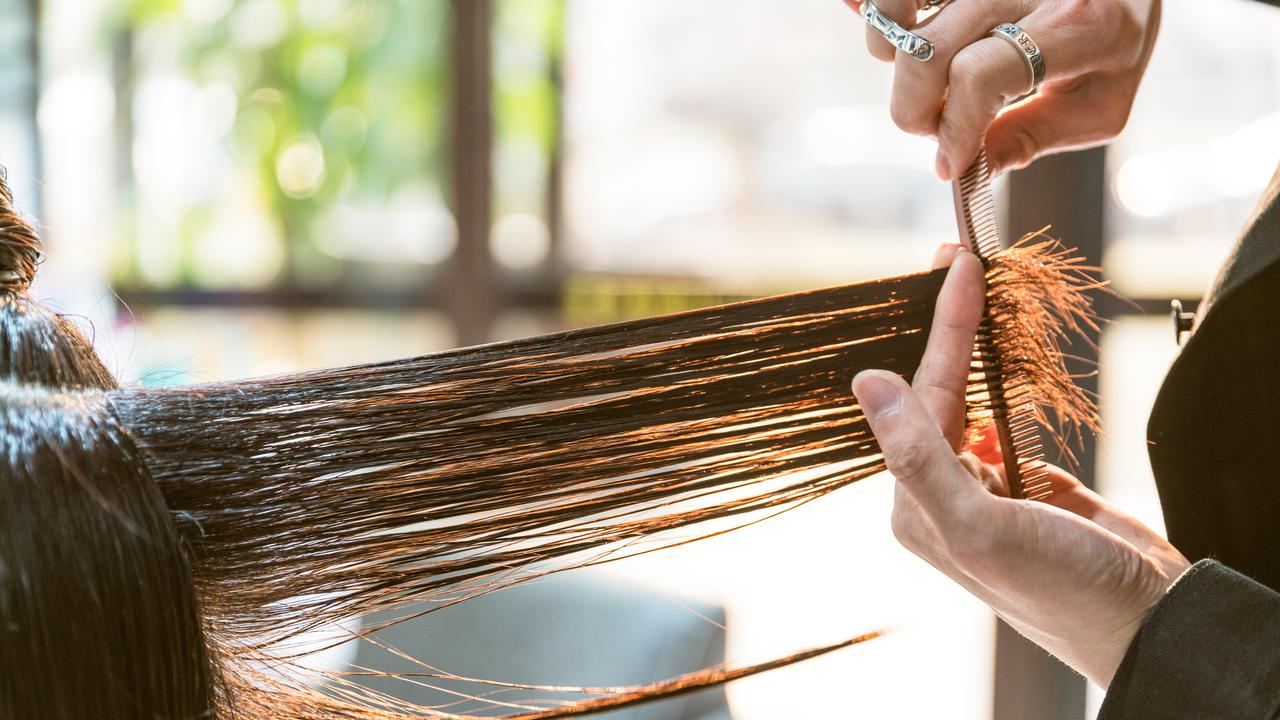Aussie boss brutally sacks worker in just nine words
June happily answered the phone when her new boss called, but was left stunned when she uttered one brutal sentence, then hung up.
June* had recently moved from Thailand with her two sons and now ex-husband, and was thrilled to score a job as a hairdresser in NSW.
But just days into her new role, she received a phone call from her boss to tell her she was fired.
“She called me and she said, ‘okay, you don’t have to come to work anymore,’” June told news.com.au. “I said ‘what do you mean?’
“And then she hung up the phone.”
It was the last in a string of terrible experiences that June didn’t expect to encounter in a country like Australia.
“(I thought) here is a nice government and I’m not going to get these troubles or problems from work at all.
“I didn’t realise this was going to happen in Australia at all. But it did, this happened and it made me feel very unsafe.”

June was a hairdresser in Thailand, but upon moving to Australia, needed a Certificate III in hairdressing to be able to continue working at the same level. Still midway through her TAFE training, she currently holds a Certificate II, which qualifies her as a salon assistant.
In January of 2023, the 43-year-old found a job at a local salon near the Hunter Valley in NSW. After an interview, the salon manager asked June to complete a total of 26 hours of unpaid trials to see if she was up for the job.
“She said, ‘you have to prove yourself that you can work for us.’”

When she was finally offered a job, the mum of two was shocked to be told that she would only receive a wage of $17 per hour, despite being expected to complete duties of a fully-qualified employee, such as cutting and colouring hair, though her Certificate II only qualifies her to wash hair and perform administrative duties.
According to the Fair Work Ombudsman website, the award for hairdressing apprentices who have completed Year 12 is $16.09 per hour, however for adult apprentices (who are 21 years or over when starting an apprenticeship), employers are instructed to pay the lowest adult rate of $23.38 per hour.
Despite constant requests, her pay was never renegotiated, and June said the workload felt far from fair, saying that she was sometimes forced to work 11-hour days with no break, which concerned even her clients.
“My hand was shaking when I cut and my client saw that and she said, ‘are you okay?’
“And I said ‘I didn’t have lunch’. And she said ‘no, that’s illegal.’”

After she was fired, June contacted Fair Work soon after to report the incident, and the investigation remains underway.
The danger of exploitation
Workplace expert and MD of Q5 Australia, Lyndal Hughes, said that exploitation like this is occurring in a “number of ways” in Australia and beyond.
Wage theft can include paying below award rates, often with cash; not paying penalty rates on public holidays; or demanding an unpaid trial to train or assess someone’s work.
Surveys by The Migrant Justice Institute over the past five years found that around three quarters of migrant workers earned below the casual minimum wage in Australia, and a quarter earned less than half that. However, nine in 10 underpaid workers issued no plea for help.
Ms Hughes explained that for exploited workers, wage theft puts them in a “precarious position” psychologically.
“You feel you don’t have a voice. And it’s very hard to understand what your rights are, what voice you have, and where you can seek help.
“So you’re put in a precarious, vulnerable mindset.”
And to make matters worse, the expert pointed out that like June, most migrant workers are “highly skilled people” and likely have partners and families who also feel the sting of injustice and vulnerability.

“You’re not just impacting one person, you’re impacting a family unit, and that family unit becomes more vulnerable. Living hand to mouth, and the knock on effect into the community that you and I share, is that they’re not thriving. They’re not contributing in a way that makes it a richer community for all of us.”
Because, as Ms Hughes pointed out, “there is no organisation … where the term innovation is not being used.” And if companies are to innovate, they need diversity.
“The quickest way to get to innovation is to have diversity of thinking, and diversity of approaches.
“Migrant workers bring diversity in spades. They bring it through background, through work experience, through different thinking styles. And so … I think the tail end of this for Australia is that we’re economically disadvantaging ourselves as a country for the future.”

What to do if you need help
A Fair Work Ombudsman spokesperson said that protecting migrant workers and Visa holders is one the “enduring priorities” of Fair Work, and that “Visa holders have the same protections under Australian workplace laws as all other employees.”
“Migrant workers are of concern to the FWO because we know they can have limited knowledge about Australia’s workplace rights and entitlements, as well as language and cultural barriers that can discourage them from seeking assistance. They may also be concerned about their visa if they seek help.
Visa holders with work rights should be aware that if they seek the FWO’s help, there is an agreement in place with the Department of Home Affairs, called the Assurance Protocol, that will generally protect their visa status. No eligible worker that has accessed the Assurance Protocol has had their visa cancelled.”
*Name has been changed to protect privacy.



